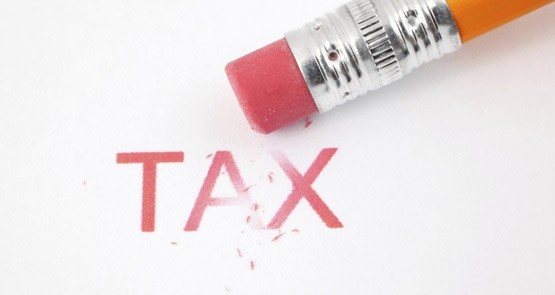
It’s only a week ’til the 2019-20 budget, which has proceeded without too much of the usual welter of drops and leaks to journalists (and the occasional actual scoop, usually by Phil Coorey or Laura Tingle) that we get in more normal years. This one, of course, is very different — not merely a month early, and likely to signal the start of the election campaign, but the largest state has just finished an election campaign and a variety of external issues keep intruding into whatever narrative either side wants to push.
What coverage there has been has tended to focus around the government’s need for bigger incomes tax cuts — as things currently stand, its tax cuts are far smaller than the ones that Labor has proposed (and fully funded) — and the additional revenue flowing from stronger-than-forecast commodity prices.
However, the Reserve Bank has pointed out that the government is also benefiting from a much more aggressive tax collection effort. In a speech this morning, the RBA’s Assistant Governor (Economic) Luci Ellis, the chief economist for the governor and board, pointed out that growth in tax revenues has been significantly higher in recent years.
It’s normal for growth in tax revenue to outpace income growth a bit: that is how a progressive tax system works. A useful rule of thumb is that, in the absence of adjustments to tax brackets to allow for bracket creep, for every one percentage point of growth in household income, taxes paid by households will on average increase by about 1.4 percentage points. That’s an on-average figure, though. The actual ratio can vary quite a bit. In the past year, taxes paid by households increased by around 8%, more than double the rate of growth in gross household income of 3.5%. So the ratio is more like a bit over two-to-one at the moment, rather than 1.4 to one.
And this has happened while household income growth itself has struggled. “What is noteworthy,” Ellis said, “is that for all of the past six years, growth in tax paid has exceeded income growth by an above-average margin, at a time when income growth itself has been slow.”

What has driven the unusually high tax take? “Several things,” Ellis argues. Lower interest rates mean fewer deductions for investment property loans. Higher property prices have increased capital gains tax revenue from property investors. But also, “compliance efforts and technological progress in tax collection have boosted revenue collected from a given income. The Tax Office reports that its efforts to raise compliance around work-related deductions have boosted revenue noticeably. The next wave of this effort, focused on deductions related to rental properties, could result in further boosts to revenue.”
Ellis notes that these boosts aren’t permanent, although they could last a while — a subtle hint, perhaps, that the government should not go basing permanent tax cuts on temporary increases in income taxes. But the data confirms what Crikey has been saying for several years — that this is a big-taxing government, just like the Howard government was. According to the most recent budget numbers, from last year’s Mid Year Economic and Fiscal Outlook, the Coalition inherited a tax:GDP ratio of 21.3% from Labor, but it has boosted that to 23,1% this year and likely 23.3% — a full two percentage points of GDP more than Labor — next year. Next week’s budget will almost certainly revise those numbers upward.
However shambolic the Abbott/Turnbull/Morrison government has been on everything else, it has proved expert at lifting the tax burden on Australians.








The ATO’s robo tax collection methods are not transparent or accountable to the tax payer. I paid a tax debt of approx $500 when my first knowledge of this unsubstantiated debit was a debit collectors phone message. I have still not received any receipt or acknowledgment of this transaction ?
Are you sure that you weren’t scammed?
The ATO always sends a real, wood pulp & ink letter. And issue receipts.
“However shambolic the Abbott/Turnbull/Morrison government has been on everything else, it has proved expert at lifting the tax burden on Australians.”
Generally, to lift a burden is to provide relief from it. I think you mean “increasing the tax burden on Australians”.